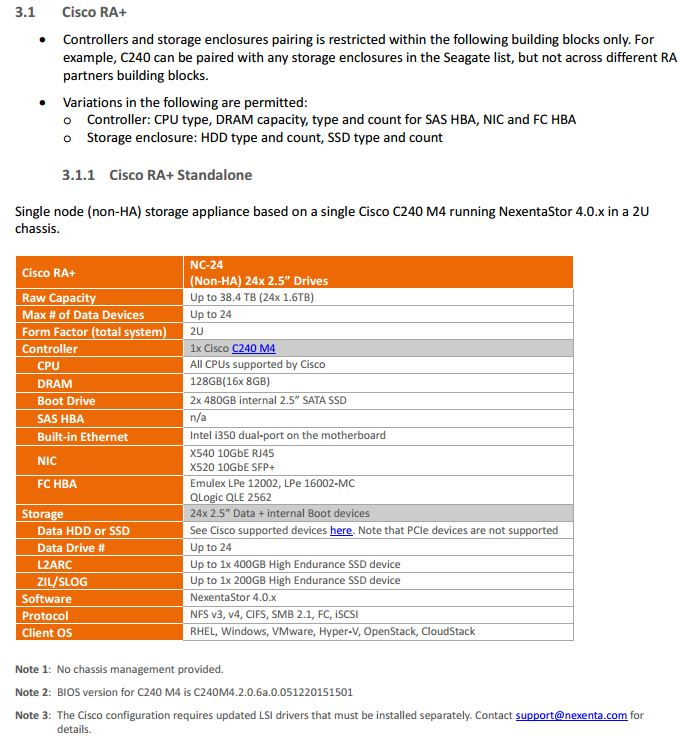Nexenta Joins Cisco Solution Partner Program
And achieves compatibility certification with Cisco C240 M4.
This is a Press Release edited by StorageNewsletter.com on November 20, 2015 at 2:50 pmNexenta Systems, Inc. announces that its NexentaStor 4 has achieved Cisco compatibility certification with Cisco C240 M4.
The Internet of Everything (IoE) continues to bring together people, processes, data and things to enhance the relevancy of network connections. As a member of the Cisco Solution Partner Program, Nexenta is able to create and deploy solutions to enhance the capabilities, performance and management of the network to capture value in the IoE.
Joint reference architectures with Cisco UCS and NexentaStor can be used to evolve storage infrastructures with thousands of VMs running in the data center, that scale from tens of terabytes to petabyte configurations.
“NexentaStor delivers unified file and block storage services, runs on industry standard hardware like Cisco UCS, and includes all data management functionality to meet the needs of enterprises around the globe,” said Thomas Cornely, chief product officer, Nexenta. “Enterprises are turning to Cisco UCS and NexentaStor for a storage environment that gives superior performance at a low cost.“
“Our decision to go with Nexenta will have saved the university around $9 million over a five-year period,” said Patrick Hopewell, enterprise infrastructure solutions (EIS) director, University of Toronto. “Other storage vendors were more than 3x what we ultimately negotiated with Nexenta, andyet the functionality was basically the same.“
The Cisco Solution Partner Program, part of the Cisco Partner Ecosystem, unites Cisco with third-party independent hardware and software vendors to deliver integrated solutions to joint customers. As a preferred solution partner, Nexenta has achieved Cisco compatibility certification on at least one solution, and can provide its customers with 24-hour, 7-days-a-week customer support.
Nexenta-Cisco Reference Architecture Datasheet
* Compatibility certification via Interoperability Verification Testing and Cisco Validated Design is designed to simulate typical customer configurations and does not replace the need for on-site testing and interoperability validation in conjunction with actual implementation.















 Subscribe to our free daily newsletter
Subscribe to our free daily newsletter

